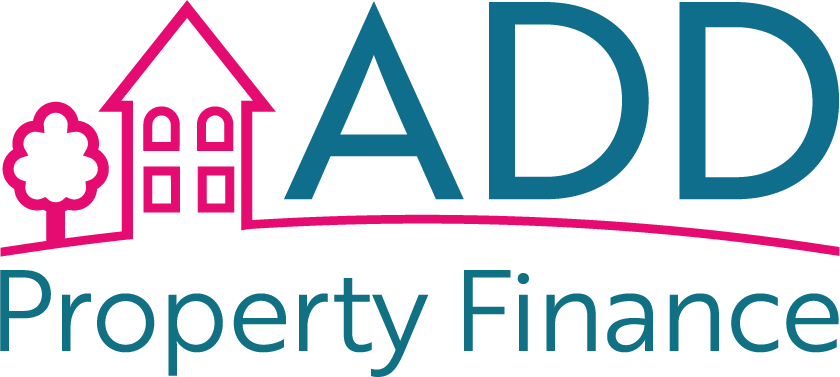Embarking on a property development project requires careful planning, strategic financing and expert guidance to navigate the complexities of the process. Whether you’re building from the ground up, converting existing properties, refurbishing outdated structures or undertaking a self-build project, securing the right development mortgage is paramount to your success. At ADD Property Finance, we specialise in providing tailored mortgage solutions to help developers realise their vision and maximise their investment potential.
To minimise interest charged, these mortgages release the funds to cover the cost of conversion works in arrears.
Ground Up Development Mortgages: Building Futures from the Ground Up
Ground up development projects involve constructing new properties or developments on vacant land. When considering ground up development mortgages, developers should focus on:
- Land Acquisition: Acquiring suitable land for development is the first step in a ground up project. Developers should assess factors such as location, zoning regulations and site feasibility before proceeding with land purchase.
- Planning and Permissions: Obtaining planning permissions and securing regulatory approvals is crucial for ground up developments. Developers should be prepared to navigate the planning process and comply with local regulations and building codes.
- Construction Financing: Ground up development mortgages typically provide financing for land acquisition, construction costs and related professional expenses. Developers should ensure sufficient funding is in place to cover these costs with a minimum 10% contingency throughout the project. ADD Property Finance can assist with 100% Loan to Cost funding for the right project.
Conversion Mortgages: Transforming Properties for New Purposes
Conversion projects involve repurposing existing buildings or structures for alternative uses. When exploring conversion mortgages, developers should consider:
- Structural Assessment: Assessing the structural integrity and suitability of existing buildings for conversion is essential. Developers should conduct thorough due diligence to identify any potential challenges or issues that may arise during the conversion process.
- Planning and Permissions: Obtaining planning permissions and regulatory approvals for conversion projects is necessary to ensure compliance with building regulations and zoning requirements. Developers should engage with local authorities and planning departments to navigate the approval process effectively.
- Renovation Costs: Conversion mortgages typically cover up to 75% of the purchase price and 100% of the conversion costs required to repurpose the property. Developers should budget for a deposit, legal costs, the initial stage of works, and allocate funds for unforeseen costs or delays that may arise during the conversion process.
Refurbishment Mortgages: Revitalising Properties for Optimal Value
Refurbishment projects involve renovating or improving existing properties to enhance their value and appeal. Key considerations for refurbishment mortgages include:
- Property Assessment: Assessing the condition of the property and identifying areas for improvement is essential for refurbishment projects. Developers should prioritise renovations that enhance property value and appeal to potential buyers or tenants.
- Budget Planning: Refurbishment mortgages provide financing for renovation costs, materials and labour expenses. Developers should create a detailed budget and timeline for the refurbishment project to ensure costs are managed effectively and timelines are met.
- Market Analysis: Conducting a market analysis to assess demand, rental yields and property values in the area is crucial for determining the potential return on investment for refurbishment projects. Developers should align renovations with market trends and preferences to maximise investment returns.
Self-Build Mortgages: Crafting Your Dream Home from Scratch
Self-build projects involve constructing a new property or home from the ground up, often with the owner acting as the project manager. Considerations for self-build mortgages include:
- Land Purchase: Acquiring suitable land for self-build projects is the first step in the process. Developers should assess factors such as location, access to utilities and site feasibility before purchasing land for self-build.
- Construction Financing: Self-build mortgages provide financing for land acquisition, construction costs and related expenses. Developers should ensure sufficient funding is in place to cover construction expenses and contingencies throughout the self-build process.
- Project Management: Managing the construction process and coordinating contractors and suppliers is crucial for self-build projects. Developers should have a clear project plan and timeline in place to ensure the project progresses smoothly and efficiently.
Why Consult with ADD Property Finance?
Navigating the complexities of development mortgages requires expertise and industry knowledge. At ADD Property Finance, we specialise in guiding developers through the intricacies of property development financing, ensuring they secure the most suitable mortgage solutions for their projects.
By consulting with ADD Property Finance, developers benefit from:
- Personalised Advice: We work closely with our clients to understand their development objectives and tailor mortgage solutions to their specific requirements.
- Access to Lenders: With access to a wide network of lenders specialising in development mortgages, we can connect our clients with competitive financing options.
- Regulatory Compliance: We stay abreast of the latest planning regulations and guidelines, ensuring our clients remain compliant throughout the development process.
- Strategic Guidance: Our Mortgage Advisers provide strategic guidance and support at every stage of the development journey, empowering developers to make informed decisions and maximise their investment potential.
In conclusion, whether you’re undertaking a ground up project, conversion, refurbishment or self-build, consulting with an experienced Mortgage Adviser is essential for securing the right development mortgage and navigating the complexities of the process. At ADD Property Finance, we are committed to helping developers achieve their vision with confidence. Contact us today to learn more about our development mortgage advisory services and how we can assist you in realising your property development goals.







